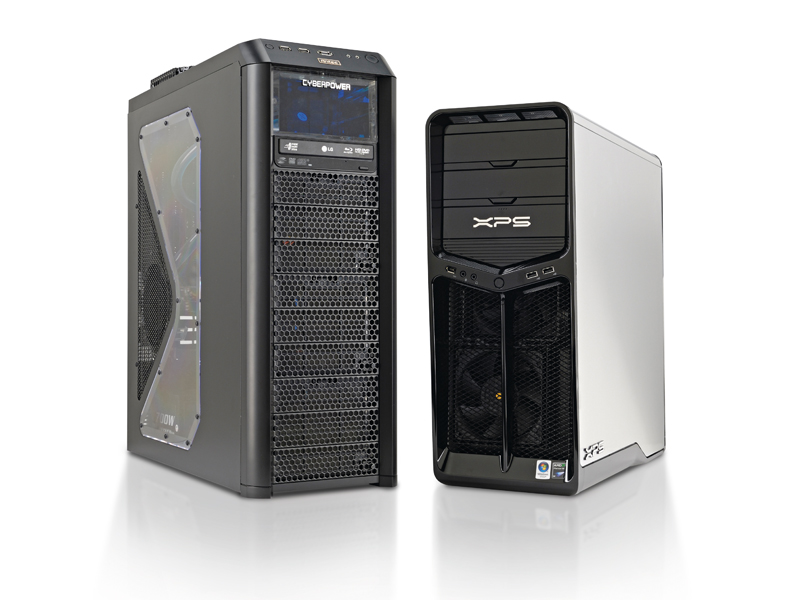Buyer's guide: gaming PC head to head

For small independent PC makers in the UK, competing against the big boys such as Dell and HP must be daunting – especially since so much about producing computers for the mass market depends upon economies of scale.
However, one area where the commoditisation of computing has not yet become all-encompassing is the gaming PC. Granted, price remains important in this specialist sector, but most gamers know that cheaper isn't usually better. This allows the little guy to make a difference, to be a bit more nimble than the lumbering leviathans.
Typically, the big guns are able to commission bespoke chassis designs, and therefore tend to produce cosmetically more mature systems. Dell's latest gaming machines are just that, and the Dell XPS 625 oozes quality thanks to a combination of lush, thick aluminium panels and precision-engineered glossy plastic.
Read TechRadar's Dell XPS 625 review
Major manufacturers also frequently get first dibs on the hottest kit, such as newly released graphics cards. On the downside, though, the large international system builders often take a more conservative attitude to system specifications.
Overclocking, for instance, is usually off the menu for all but the most expensive rigs. Equally, sometimes the component mix more accurately reflects the deals of the purchasing department rather than the ideal gaming setup.
In the past, Dell has been guilty of using components with nonstandard form factors, such as proprietary motherboards and power supplies. This made upgrading either difficult or downright impossible. Fortunately, Dell has come to understand the market better and the XPS 625 is standard ATX from head to toe.
Sign up for breaking news, reviews, opinion, top tech deals, and more.
As for independent PC makers such as CyberPower, they must cobble systems together from widely available off-the-shelf components. That doesn't necessarily compromise performance or quality, but it does usually translate into a rather unsophisticated aesthetic theme. Vaguely adolescent-looking rigs festooned with fans and neon lights are par for the course.
As you might guess from its name, CyberPower's Gamer Ultra Perseus is a case in point. Its Antec chassis is certainly functional, but it's hardly grown up.
Read TechRadar's CyberPower Gamer Ultra Perseus review
- 1
- 2
Current page: Big manufacturers vs the independents
Next Page Getting value for money in a gaming PC